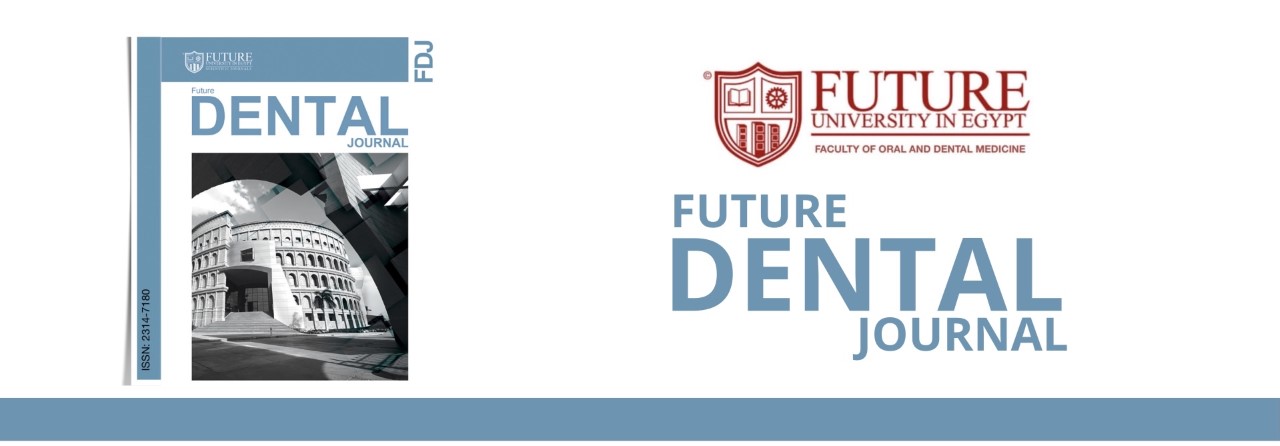
ORCID
https://orcid.org/0009-0003-2292-7835
Abstract
Aim: This research intended to assess how the addition of nanoparticles impacts the antimicrobial effectiveness and bonding ability of bio-ceramic sealers when compared to resin-based sealers.. Materials and Methods: Bioactive glass nanoparticles (BG NPs) were prepared via a modified Stöber process. AH Plus and Bio-C Sealer were mixed with (BG NPs). Part I: Antibacterial tests involved 96 tubes divided into 6 main groups , tests were conducted using Enterococcus faecalis using direct contact test (DCT). Part II: Push-out tests utilized 32 extracted human permanent anterior teeth and were performed to evaluate bond strength. Results: Resin-based sealers and bio-ceramic sealers exhibited improved antimicrobial properties with nanoparticle incorporation. Bond strength was highest in the apical third for bio-ceramic sealers with nanoparticles, followed by bio-ceramic without nanoparticles, resin-based with nanoparticles, and resin-based without nanoparticles. Conclusion: Incorporating nanoparticles enhanced the antibacterial activity and bond strength of root canal sealers. Resin-based sealers demonstrated higher initial antibacterial efficacy, while bio-ceramic sealers showed superior bond strength, particularly in the apical third of root canals. The findings suggest that adding nanoparticles could improve the characteristics of root canal sealers, possibly resulting in better treatment results.
Recommended Citation
Tarek H, Kamel WH, Sabet NE, Abdelwahed A. The effect of nanoparticles incorporation on antimicrobial and bond strength properties of bio-ceramic sealer (An In Vitro Study). Future Dental Journal. 2025; 10(2):72-84.

